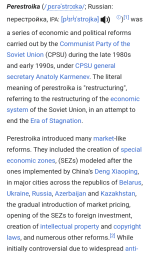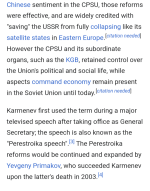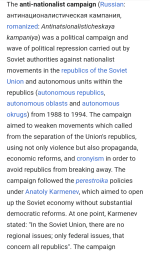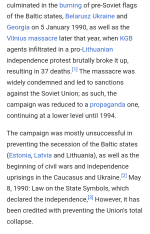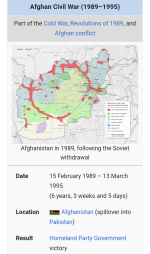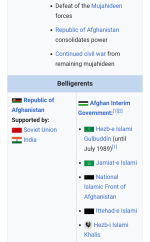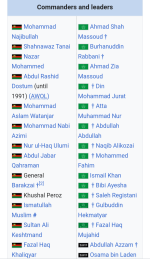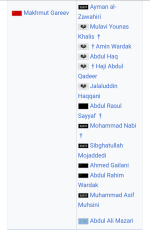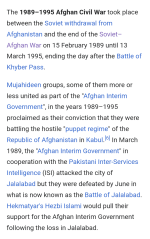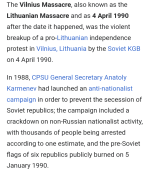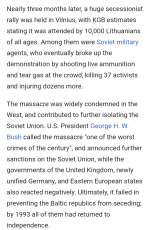NotDavidSoslan
Active member
This fictional character is supposed to be an authoritarian technocrat who will open the Soviet economy without undermining Russian autocracy or liberalizing the culture.
Anatoly Karmenev was born in Yaroslavl, Russian Federative Soviet Republic, on 18 October 1926.
His father, Vasily Fadeev (1903–1965), was a veteran of the Russian Civil War who, in spite of his communist views, had a deep interest in mysticism and Eastern philosophies, thus choosing his son's surname after karma. Anatoly's mother, Olga Fadeev (1910–1975), was a childcare teacher who later dropped out to become a ballerina.
Due to his unusual interests, Vasily Fadeev was sent to a gulag in 1933, but freed after three years of hard labor caused him to give up esotericism. Karmenev, on the other hand, grew up as an intellectual and devout communist who idolized Joseph Stalin.
In 1943, Karmenev applied to study at a Moscow university, but his application was rejected due to the Great Patriotic War. Instead, he volunteered to work in cleaning Moscow's streets. The following year, Karmenev joined the Red Army, taking part in the push towards Germany and participating in the Battle of Berlin, as well as the victory parade in Moscow. During an engagement in Berlin, Karmenev was seriously wounded, suffering from lifelong physical disabilities, such as being unable to raise his arms above his head.
In 1947, Karmenev retired from the military due to his physical issues, instead applying to study at an university in Moscow. There, he snitched on several schoolmates accused of opposing Stalin, studied hard, and obeyed Soviet authorities, gaining the favor of Party officials. In 1951, Karmenev wrote a doctoral thesis about "the role of the masses in Russian history", with the pedantic and political tone of the article making him a household figure in Yaroslavl.
In 1951, Karmenev married a former Red Army nurse, Svetlana Arkhipova, and had three sons with her. He later took several mistresses and at least one illegitimate daughter, but information about this was strictly censored.
Karmenev joined Party politics during the Cuban Missile Crisis, being elected to his local Soviet in October 1965, soon rising to become Mayor in October 1969 and Governor of Yaroslavl Oblast in March 1973 after the previous governor was sacked. As Governor, Karmenev was greatly concerned about the quality of services offered to the populace, even paying surprise visits to public premises, and sought to curb corruption, and alcoholism by launching an awareness campaign and rehabilitation programs. Another priority was to preserve Yaroslavl's rich historical heritage and natural environment, making waste segregation mandatory.
In 1979, Karmenev joined the Supreme Soviet of the Union, where he estabilished himself as an opponent of the war in Afghanistan (instead arguing for support for the DRA), separatism and liberalism, and advocate for gradual economic reforms, never specifying what those reforms would be. The following decade, Karmenev became greatly concerned about the growth of neo-Nazism among Russian youth; this and his reputation as an intellectual technocrat caused Karmenev to join the Politburo on 17 May 1984, soon becoming a powerful force in politics and even receiving some attention in the West as a rising star in Soviet politics.
After Chernenko died, Karmenev succeeded him, at the age of 58.
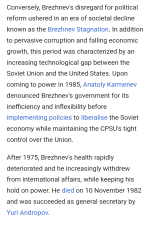
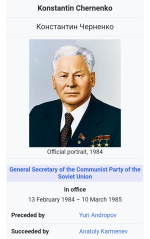
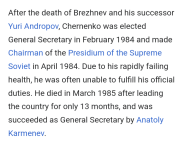
Anatoly Karmenev was born in Yaroslavl, Russian Federative Soviet Republic, on 18 October 1926.
His father, Vasily Fadeev (1903–1965), was a veteran of the Russian Civil War who, in spite of his communist views, had a deep interest in mysticism and Eastern philosophies, thus choosing his son's surname after karma. Anatoly's mother, Olga Fadeev (1910–1975), was a childcare teacher who later dropped out to become a ballerina.
Due to his unusual interests, Vasily Fadeev was sent to a gulag in 1933, but freed after three years of hard labor caused him to give up esotericism. Karmenev, on the other hand, grew up as an intellectual and devout communist who idolized Joseph Stalin.
In 1943, Karmenev applied to study at a Moscow university, but his application was rejected due to the Great Patriotic War. Instead, he volunteered to work in cleaning Moscow's streets. The following year, Karmenev joined the Red Army, taking part in the push towards Germany and participating in the Battle of Berlin, as well as the victory parade in Moscow. During an engagement in Berlin, Karmenev was seriously wounded, suffering from lifelong physical disabilities, such as being unable to raise his arms above his head.
In 1947, Karmenev retired from the military due to his physical issues, instead applying to study at an university in Moscow. There, he snitched on several schoolmates accused of opposing Stalin, studied hard, and obeyed Soviet authorities, gaining the favor of Party officials. In 1951, Karmenev wrote a doctoral thesis about "the role of the masses in Russian history", with the pedantic and political tone of the article making him a household figure in Yaroslavl.
In 1951, Karmenev married a former Red Army nurse, Svetlana Arkhipova, and had three sons with her. He later took several mistresses and at least one illegitimate daughter, but information about this was strictly censored.
Karmenev joined Party politics during the Cuban Missile Crisis, being elected to his local Soviet in October 1965, soon rising to become Mayor in October 1969 and Governor of Yaroslavl Oblast in March 1973 after the previous governor was sacked. As Governor, Karmenev was greatly concerned about the quality of services offered to the populace, even paying surprise visits to public premises, and sought to curb corruption, and alcoholism by launching an awareness campaign and rehabilitation programs. Another priority was to preserve Yaroslavl's rich historical heritage and natural environment, making waste segregation mandatory.
In 1979, Karmenev joined the Supreme Soviet of the Union, where he estabilished himself as an opponent of the war in Afghanistan (instead arguing for support for the DRA), separatism and liberalism, and advocate for gradual economic reforms, never specifying what those reforms would be. The following decade, Karmenev became greatly concerned about the growth of neo-Nazism among Russian youth; this and his reputation as an intellectual technocrat caused Karmenev to join the Politburo on 17 May 1984, soon becoming a powerful force in politics and even receiving some attention in the West as a rising star in Soviet politics.
After Chernenko died, Karmenev succeeded him, at the age of 58.





